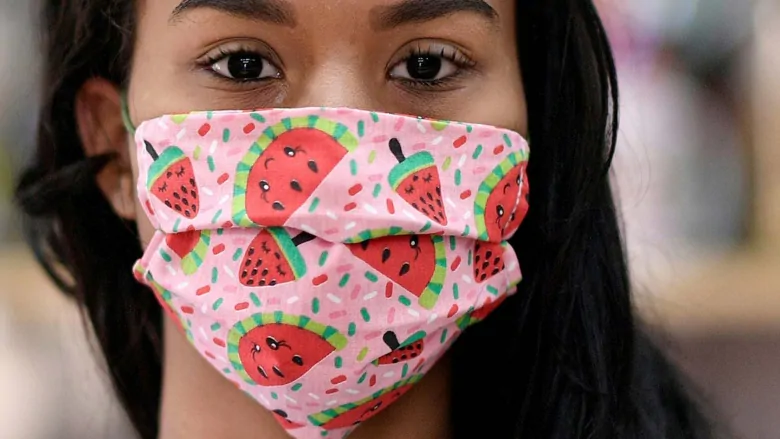We’ve received more than 1,000 questions about masks from Canadians, and some inquiries show that many of you are just straight-up confused about wearing them. We took your most common and curious questions to the experts.

We’re answering your questions about the pandemic. Send yours to COVID@cbc.ca, and we’ll answer as many as we can. We publish a selection of answers online and also put some questions to the experts during The National and on CBC News Network. So far, we’ve received more than 41,000 emails from all corners of the country.
We’ve received more than 1,000 questions about masks from Canadians, and some inquiries show that many of you are just straight-up confused about wearing them.
With the country reopening, and Canadian public health officials now recommending the use of masks in public, we took your most common or curious questions to the experts.
Here’s what you wanted to know about masks.
What’s the point of wearing a non-medical mask?
Chief Public Health Officer Theresa Tam says masks can “add a layer of protection” in situations where physical distancing is impossible, but that protection is only for the people around you.
When you breathe, cough, sneeze or laugh, droplets are expelled from your mouth and nose.
WATCH | Dr. Theresa Tam explains her latest recommendation on mask use:
Dr. Theresa Tam, Canada’s chief public health officer, is now recommending that Canadians wear masks in public as an “added layer of protection” whenever physical distancing is not possible. 2:27
“If you wear a mask, you may notice after a while it’s getting damp, so the moisture in your breath is staying behind,” said Colin Furness, an infection control epidemiologist and assistant professor at the University of Toronto.
The hope is that the mask stops some of your droplets from reaching the air — and could stop them from contaminating surfaces and people.
But Furness cautions that there are no comprehensive studies on the efficacy of cloth masks, and they “aren’t a guarantee of anything.”
If cloth masks can stop stuff from getting out, can they stop stuff from getting in?
“Maybe a little bit. Maybe not,” said Dr. Isaac Bogoch, an infectious disease specialist and researcher based at the Toronto General Hospital.
“We don’t really know,” he said. “It might slightly reduce one’s risk [of exposure], but I can’t look you in the eye and tell you if it does and by how much.”
Furness agreed. He said masks are probably helping “a bit … but the research is really thin,” especially considering all the different kinds of materials that people are using to make masks.
“There is a temptation and a risk to feel safer when you wear your mask,” Furness said. “But you’re not. There is no substitute for physical distancing.”
Is there any material that’s better or worse for a cloth mask?
According to Health Canada, non-medical face masks or face coverings should be made of at least two layers of tightly woven material fabric, such as cotton or linen.
Knit materials — such as the kind used in most T-shirts — are stretchable, and small holes open in the knit. That’s why woven fabrics are considered more effective.
The masks should allow for easy breathing; be comfortable and not require frequent adjustment; and be large enough to completely and comfortably cover the nose and mouth without gaping, according to Health Canada.
Canada’s deputy health minister, Howard Njoo, said that a simple way to tell if your mask is thick enough is by using what he called the “window test.”
“If you can hold the material of the mask to a window — hopefully, with the sunshine outside — and it’s not translucent and pretty opaque, it will at least do the job in a general sense,” he said.
A 2013 study in the journal Disaster Medicine and Public Health Preparedness found tea towels had the best filtration efficiency. The same study suggested cotton works better than silk or linen.
WATCH | Can cloth masks protect you from COVID-19? Two doctors weigh in:
Doctors answer your questions about the coron

